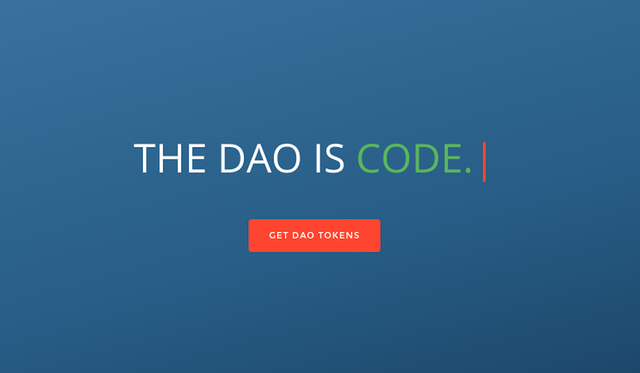The DAO Revisited.

The DAO hacker used the DAO contract according to its own terms ; these terms were simply not what the DAO salesmen presented that the DAO contract was about (and there is even the real possibility that these DAO salesmen didn't know it themselves) - however, there was one thing that was clear: that "code was the final arbiter". When it turned out that the real DAO contract was not what the DAO salesmen pretended (and maybe even believed themselves) it was - it wasn't a complicated system to have others vote over how to use your money in a crowdfunding, but rather a lottery of have others who find the trick, withdraw your money directly - people found out what it actually means "code is law", and what ethereum really stands for: a hacker's bait system. So many people didn't like that. Many people decided that "code is law, except if it isn't because we don't like it", and forked ethereum into ETH. The original chain continued under a different name, ETC, where code is still law.
In the ETH universe, which went off with the majority of the market cap, the DAO hack never took place. The unstoppable DAO was not only stopped, it essentially warped itself into simply a kind of ETH wallet. The DAO hacker never existed because the DAO as it was, never existed. This is a kind of B-film science fiction scenario where the grandchild has found a time machine in his uncle's basement, and inadvertently killed his grandfather, so that in the end, he never existed and we didn't even know about it. Imagine the possibilities this opens for murder :-)
In the ETC universe, which represents a minority of ethereum users and only kept a small part of the market cap, people stuck to the basic principle of ethereum: code is law. In that universe, the hacker didn't do anything wrong. He just read the small print of the contract much better than all the others. (not so much better, because even university professors had read that small print out and loud too, but then, code is "unstoppable").
There is no reason not to let the hacker have its rightful gains in the ETC universe. The value of ETC is made by people thinking that code is law, and then, the hacker followed the law. The people NOT agreeing with that view already expressed themselves, by using ETH, and supporting the market cap of ETH. They shouldn't be entitled to a "double vote": once with their money, and then with "law enforcement mimicking". The market cap of ETC represents those people that think that "code is law" even if that law was not what they thought it was, and the hacker did a lawful thing, even though one may say that it wasn't nice to use the full extend of the law.
But visibly the people in the ETH camp want to impose their "double morality over code is law" also to the people in the ETC universe, by using the non-fungible nature of traceable coins like ethereum to do coin colouring, and make some coins different from others.
I say "double morality" because their morality says that "theft is bad", but on the other hand, that "breaking agreements" (code = law) is no problem.
We see the utmost importance of fungible crypto currencies here, which, on block chain, comes down to anonymous coins.
The ETH fork was the way for people to prefer breaking contracts over accepting code is law in unanticipated contract clauses. They should now leave the people who think that code = law should remain as initially indicated, and where the "hacker" was just a smart participant, have it their way, and not impose a second time their view that it is a "thief" on the ETC chain.